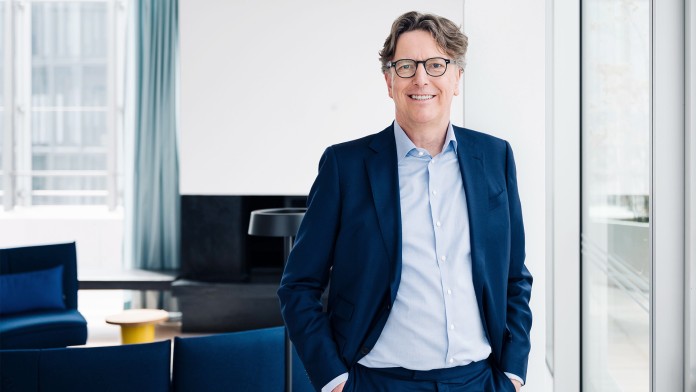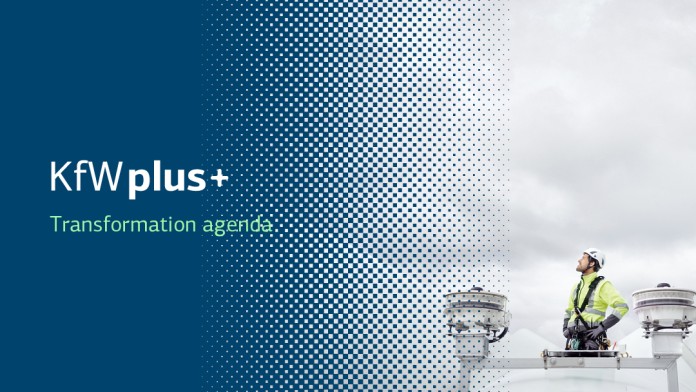Tip: Activate javascript to be able to use all functions of our website
KfW promotes sustainable prospects for people, businesses, the environment and society. We focus on topics that are particularly relevant for the future, guided by the UN's sustainability goals.
Annual and Financial Reporting 2024
Figures, facts and impact in detail

KfW looks back on a strong 2025: Compared to the previous year, its core business in domestic promotion with loans and grants increased significantly by a good third to EUR 61.0 billion (2024: EUR 45.8 billion). All segments performed very well: promotion for small and medium-sized enterprises and start-ups (EUR 23.5 billion compared with EUR 13.4 billion), for Private Clients (EUR 25.5 billion compared with EUR 22.4 billion), and Public Clients and Customised Finance (EUR 11.2 billion compared with EUR 8.4 billion).
Including transactions directly commissioned by the Federal Government (mandated transactions), the total volume of KfW’s domestic promotion in the past year came to EUR 62.0 billion, which was below the previous year’s figure (EUR 79.0 billion). In the previous year, mandated transactions totalling EUR 33.2 billion, for example for securing the energy supply or for investments in energy infrastructure, had significantly increased the volume of new domestic business.
This non-recurring effect is also reflected in the figure for KfW Group’s total new business, which last year reached a volume of EUR 98.0 billion (EUR 112.8 billion). The group’s core business excluding mandated transactions increased significantly to EUR 96.9 billion (2024: EUR 79.6 billion).

"KfW’s mandate is also one of renewal in the face of shifting geopolitical conditions: we will do everything in order to actively enable a real comeback for' Made in Germany'."
Stefan B. Wintels (CEO)

With KfWplus, KfW is becoming a digital transformation and development bank
Legal notice:
The information contained in this online Annual Report 2025 is based on KfW’s Financial Report 2025, which you can download here. Should this online Annual Report 2025, despite the great care taken in preparation of its content, contain any contradictions or errors compared to the Financial Report, the KfW Financial Report 2025 takes priority.
Share page
To share the content of this page with your network, click on one of the icons below.
Note on data protection: When you share content, your personal data is transferred to the selected network.
Data protection
Alternatively, you can also copy the short link: https://www.kfw.de/s/enkBdm67
Copy link Link copied